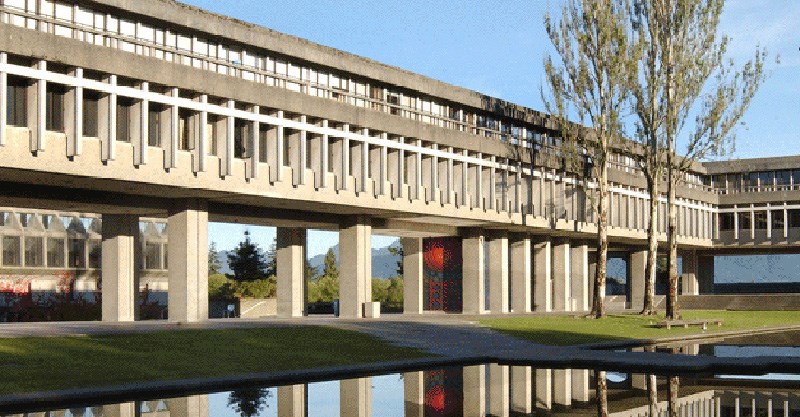Students at Simon Fraser University are worried they won’t be getting the same quality of education online while they’re being charged the same tuition fees they’d be paying if they were attending classes in-person at the Burnaby campus.
At a recent virtual town hall, representatives of several student groups said SFU’s plan to continue remote learning programs it implemented last spring at the outset of the COVID-19 pandemic into the fall semester leaves their education wanting.
“The quality is just not the same,” said Osob Mohamed, the president of the Simon Fraser Student Society.
She said students are missing out on the ability to talk with their professors and the quality of their school experience is often at the mercy of the robustness of their internet connection.
“It uncovers a lot of gaps in the system.”
But John Driver, SFU’s vice-president academic, said it’s incorrect to assume the move to new delivery methods affects the quality of education the school is able to provide. He said the university is actively providing coaching and resources to support instructors in their move to online teaching, as well as resources to assist students.
“The technological advances we’ve made in the past couple of decades means we can connect with each other better,” he said, adding online classes have been an option chosen voluntarily by about 10% of undergrad students for years as they’re better able to fit them around their busy schedules.
“We do have a lot of expertise and experience in remote learning.”
Orion Kidder, an adjunct professor at SFU and a representative for its Teaching Support Staff Union (TSSU), said remote learning has put an added burden on instructors and other staff.
“Teaching takes a lot more time, energy and effort when we’re doing it online,” he said, adding some of those frustrations filter down to technical support staff who are trying to keep up with the demand for quality cameras and microphones so the delivery of lectures is as good as possible.
The end result, said Matthew McDonald of SFU’s Graduate Students Society, is many students feel they’re getting less value for their tuition dollars, even as they face other financial burdens brought on by the pandemic, like a lack of summer or part-time employment opportunities.
“We’re really concerned about the financial impact of this pandemic,” he said.
Driver said the school is making some accommodations for those financial concerns, like extending the deadlines for paying tuition fees, allowing them to be paid in a payment plan over a period of time, as well as adjusting fees for things like lab supplies and access to the school’s recreation facilities if they’re not needed.
But, he added, the cost of delivering education remotely is no less than in a classroom.
“As time goes on, I anticipate people will become more comfortable with working in the remote or online environment,” Driver said. “The quality of learning will be the same as before.”



